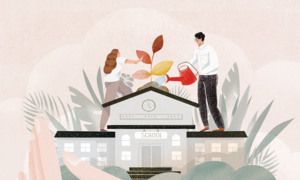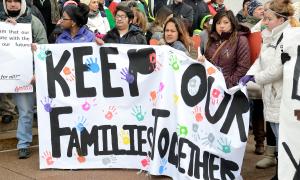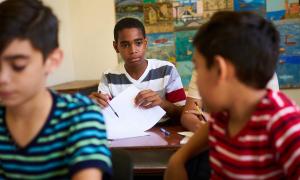article
3,150 Results
article
“Holden Caulfield is a typical teenager”?
When this teacher’s classroom of white students identified The Catcher in the Rye protagonist Holden Caulfield as a “typical teenager,” she knew she needed to broaden their idea of what “typical” teenage problems look like.
article
A Flaw in the Foundation

If we’re serious about dismantling white supremacy in schools, teacher preparation programs are an obvious place to start.
article
What We're Watching
Dim the lights and get ready to learn with these LFJ-approved films!
article
A Message From Our Director
Teaching Tolerance director Maureen Costello encourages educators to confront the difficult truths of American history.
article
"The President Said...": Why Context Matters

It'd be easy for educators to ignore the president's latest comments about undocumented immigrants. Here's why they shouldn't.
publication
Curriculum and Instruction
The topics and strategies in this section provide tools to help educators build students’ understanding of justice and develop skills to take action and participate in a diverse democracy.
May 23, 2023
page
Supporting Students from Immigrant Families
Learn more about immigrant students’ rights, public schools’ obligations to immigrant students, and resources for families.
July 11, 2017
article
‘Never Again’ Starts With Education

Mandating Holocaust education in U.S. public schools and simultaneously banning or censoring other “hard histories” is ineffective, disingenuous and further demonstrates the importance of teaching honest history.
article
Hate at School: March 2019

Hate incidents last month included threats and even violence. We’ve got to do better.
